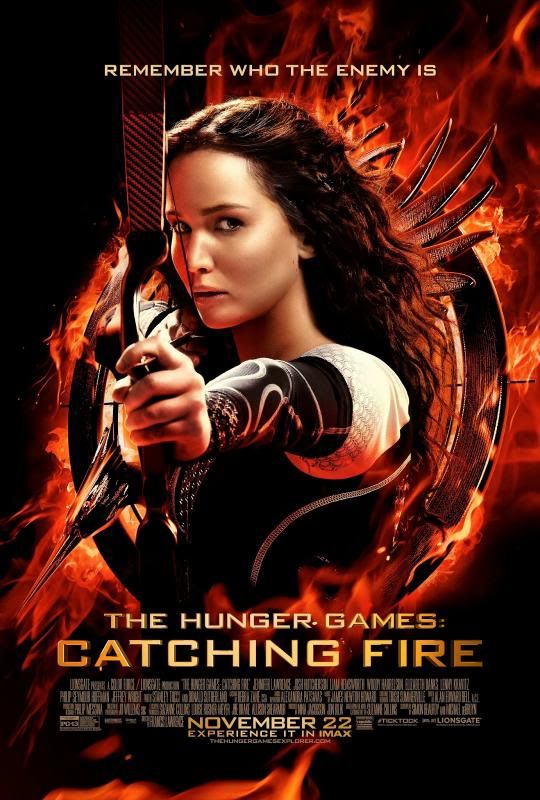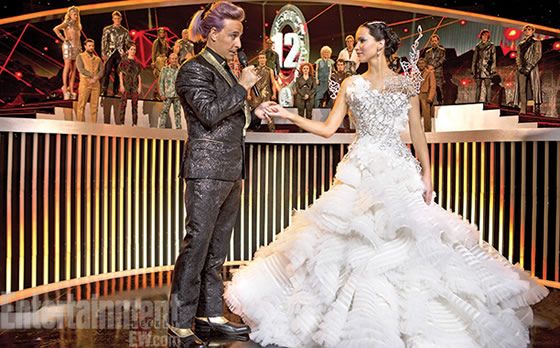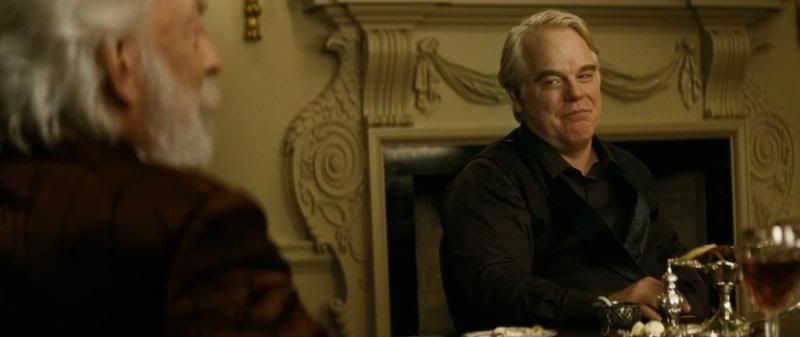There are a lot of sequels in this world that do not necessarily need to exist. From movies to games, stretching a creative idea into three or more parts has become the rule rather than the exception, and it doesn’t always yeild good results. If a narrative is planned from the beginning to have multiple parts, it can fare better, but each part must build on those that came before and expand in its own ways, instead of just treading old ground. At first glance, The Hunger Games: Catching Fire may seem to be a case of the latter – dystopia, arena combat, etc – but just a few minutes in, it’s clear that the movie is both a continuation of the tale and has its own story to tell.

At the end of Panem’s 74th Hunger Games, there were two victors instead of the usual one. Katniss Everdeen and Peeta Mallark sold the media-saturated elite of the decadent Capital on their love story, but as they return to District 12’s dark and dusty squallor, it’s clear that the relationship is just for the cameras. Moreover, their act of defiance against President Cornelius Snow has sparked protests and uprisings in the other Districts. Snow asks Katniss politely to behave herself on her victory tour around Panem, but when that doesn’t go well, he pulls the young couple back into the arena, this time with other victors, all experienced killers, with the notion that this ‘Mockingjay’ problem will sort itself out.
In case you missed the clear parallel author Suzanne Collins was drawing between imperial Rome and her dystopian vision of the future, the visuals of Catching Fire is sure to hammer it home. But along with the Roman influence comes something closer to our modern age. Panem is a society saturated with and bombarded by media. The allure and spectacle of the Capital is meant to distract the people of the Districts from their hardships and toils, and the media with its fixation on celebrity and drama spread and reinforce that distraction. The thing about an exploitative system, though, is that smart people can exploit it right back.

The parallels to things like ‘American Idol’ definitely stand out.
What strikes me most about Catching Fire is the amount of emotional nuance present in the characters. Facial expressions can be difficult to communicate through prose, but on film, any character can have a moment where a look or a gesture can speak a thousand words. From our heroine suffering from clear signs of PTSD to minor characters literally giving their all for the sake of what they believe in, the character moments in the film move us from event to event, rather than relying entirely on the mechanisms of the plot. Jennifer Lawrence carries the movie, of course, but she doesn’t do it alone. I can’t think of a performance that strikes me as bad or even mediocre, and considering that we have these strong characters being observed and possibly emulated by young people, it’s a big mark in the movie’s favor.
If I have a problem with Catching Fire, it’s that the process of adaptation has left several scenes axed that inform later scenes. Without this foundation, some of the events leading up to the climax can feel contrived, working out for Katniss more through convenience than anything she directly does. Despite the time the movie takes to have its character moments and expansions on Panem’s nature, it feels at times like some of the story’s parts are missing. I can’t guarantee I’ll buy it, but I wonder if there will be a Director’s Cut of this film that fills in some of the missing pieces.

Plutarch is scheming. That’s his scheming face.
Catching Fire was the strongest of Suzanne Collins’ books set in Panem, and it makes for a strong movie. With characters to empathize with, clean shots, and well-framed visuals, it draws the audience in far more adeptly than a lot of other entertainment aimed at young adults. It’s smart, it makes no apologies for its characters being who they are even as we relate to them, and it defintely feels more like a true sequel to The Hunger Games than something tacked on to the franchise to make more money. While I feel like some of its bits are missing, the fact that I can’t come up with any other major criticisms means the odds are definitely in this film’s favor.



Leave a Reply